2022
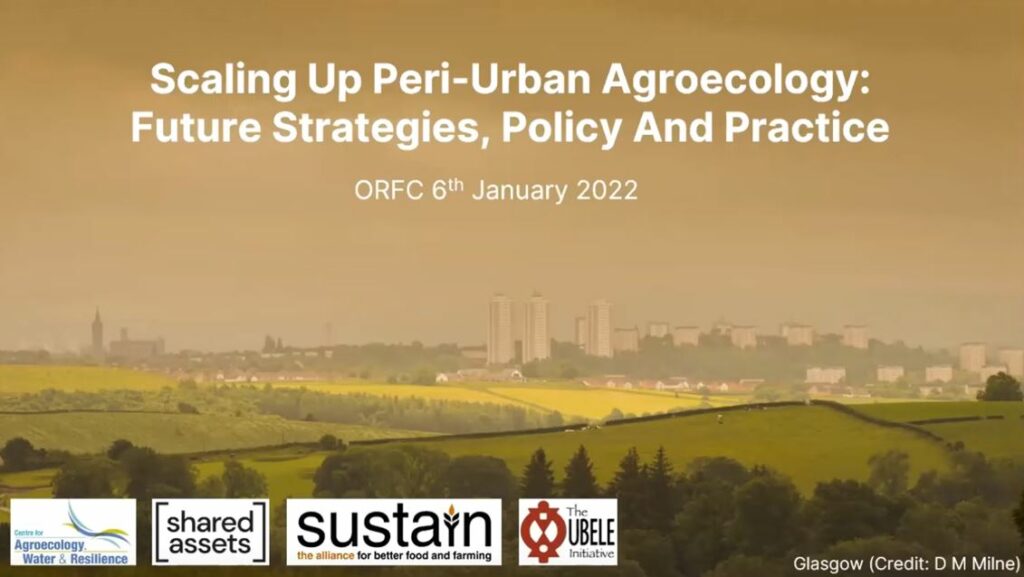
ORFC session "Scaling Up Peri-Urban Agroecology: Future Strategies, Policy and Practice"
Urbanising in Place team members collaborated with the Fringe Farming and Rootz into Food Growing projects to deliver a session on peri-urban agroecology at the (online) Oxford Real Farming Conference 2022. Findings from the Urbanising in Place research were shared in a session that developed strategy, policy and practice for scaling up agroecological food systems in and around cities.
- January 6, online
- Link to the recording
2021
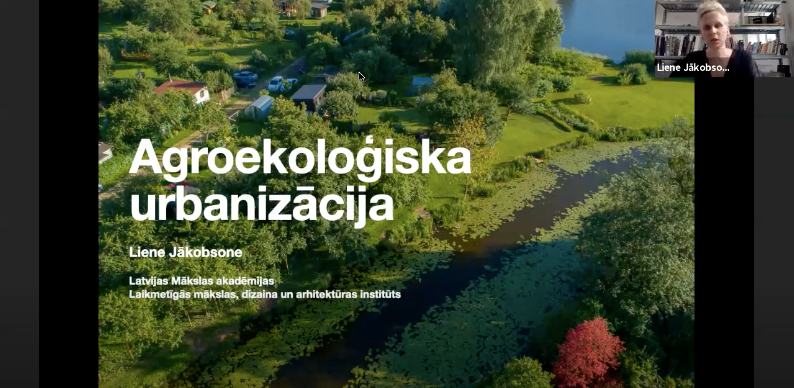
Conference presentation of Riga case study
Liene Jakobsone gave a presentation on Riga case study at the multidisciplinary online conference “Latvia on the way towards sustainable food production and consumption”, organised by Baltic Studies Centre as part of the research project SINFO. Focus of the talk was design and planning as approach to addressing food growing and provisioning issues in an urban context.
- June 11 online, Riga, Latvia
- Link to digital proceedings will be provided when ready
- Book of abstracts

Resourcing and Agroecological Urbanism book published
Chiara Tornaghi and Michiel Dehaene have published a book titled “Resourcing an agroecological urbanism: political, transformational and territorial dimensions. Foregrounding an innovative and radical perspective on food planning, this book makes the case for an agroecological urbanism in which food is a key component in the reinvention of new and just social arrangements and ecological practices. The book is a fundamendal read for all those interested in understanding the multiplicity of knowledges needed for an agroecological urbanism. The concluding chapter begin to put the preliminary results of our project in context. You can buy the paperback with a 20% discount using this code: SMA03
- March 8
- Read more
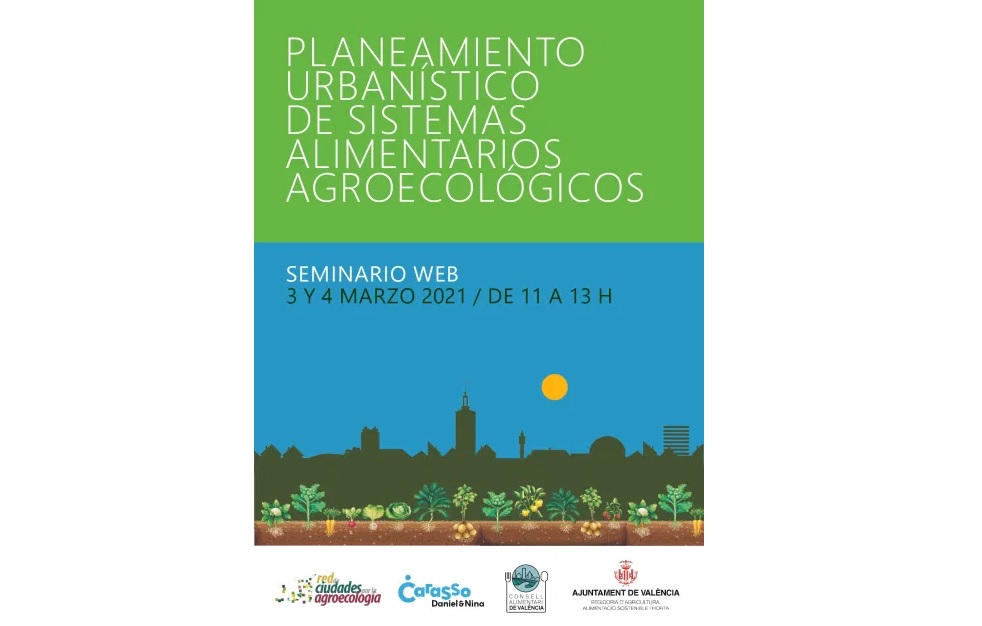
Presentation on Agroecological Urbanism at webinar for policy makers
Chiara Tornaghi was invited to speak at the webinar on Urban Planning for agroecological food systems, organised by the Spanish network of agroecological cities, with support from the Carasso Foundation and the Municipality of Valencia. Over 300 participants from technical offices of local and regional governments registered for the event. Chiara’s presentation discussed challenges, and contradiction to sustainable food planning, and presented several directions for policy, some of which emerged from the Urbanising in Place project.

Workshop 'Building Farmers’ Capacity in the Context of Urbanisation'
Chiara and Michiel hosted a session at the (online) Oxford Real Farming Conference on building farmers’ capacity in the context of urbanisation. This session reached out to farmers and activists engaged in farmer training and in the support and empowerment of peri-urban and urban agroecological farmers.
- January 8, online
- Info page on the ORFC website
- Recording
2020
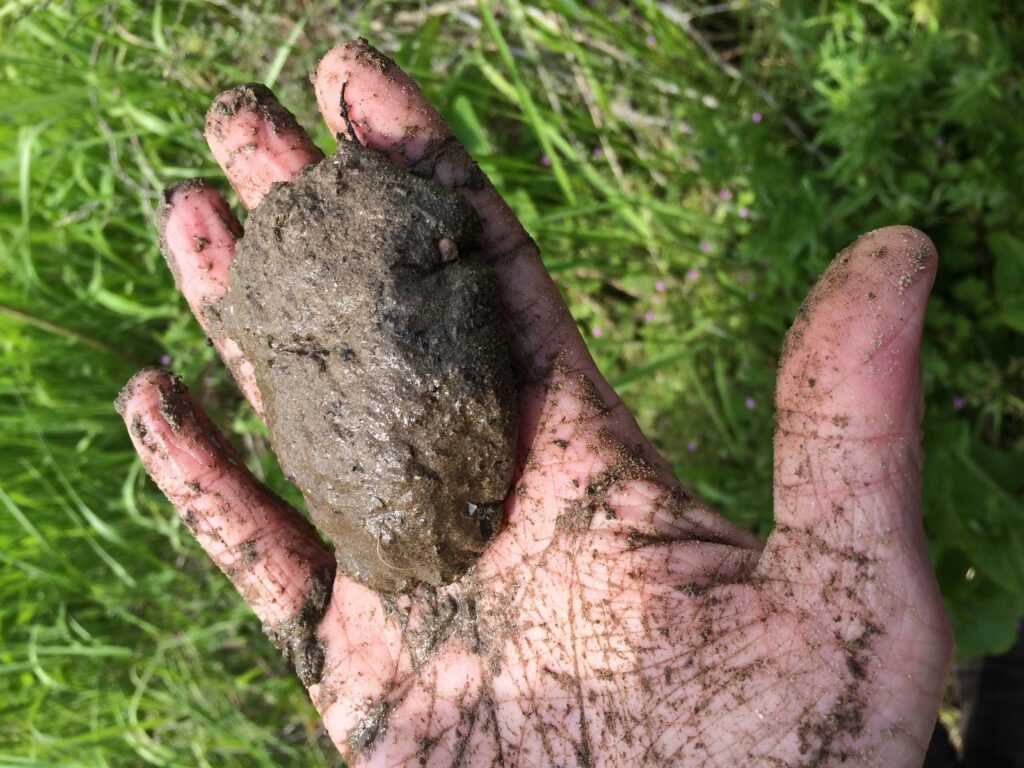
SOIL NEXUS Further funding on urban soil remediation
A coalition of partners from the Urbanising in Place project, led by Chiara at Coventry University has successfully been funded by Future Earth( Pegasus 3 call) for a 12 months project investigating best practice and community engagement approaches in urban soil remediation. Working in the framework of agroecology, the project is titled: SOIL NEXUS – Building policy tools for water- and waste-based urban soil remediation. Alongside experimental data collection and analysis, the project run 4 days of interactive workshops planned for January, March, May and September. Among the aims of the project are i) to provide evidence of quality assessment for the agroecological remediation of urban damaged soils; ii) to gather an overview of existing best practices in soil remediation aligned to agroecological principles; iii) to raise global awareness around soil care and stewardship, and iv) to provide guidance for public policy.
- December 1
- Read more
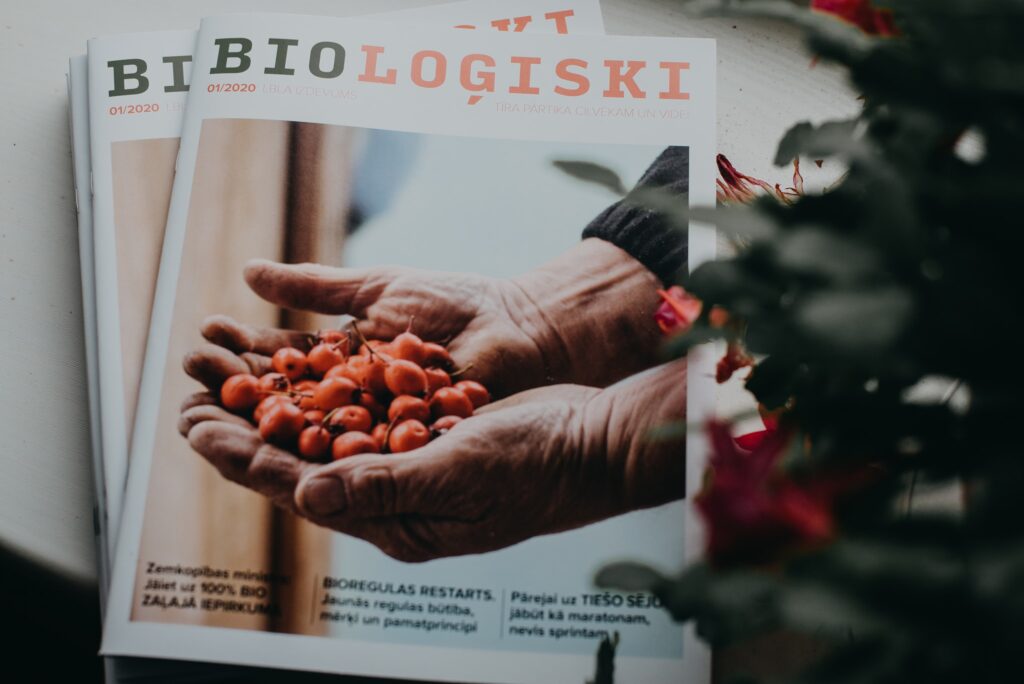
Article in Latvian magazine 'Bioloģiski'
Opinion piece by Liene Jākobsone and Manten Devriendt published in magazine ‘Bioloģiski’, issued by the Latvian Organic Farming Association. It introduces the research to a broader audience and suggests opportunities for agroecologically driven urban transformations in the context of Riga.
- 2020, Latvia
- Download the article here (in Latvian)

Briefing 'Fringe Farming in London'
Following a workshop event in February 2020 Sustain and Shared Assets produced a short briefing report investigating existing farm productivity in London’s Green Belt land, identifies data gaps, structural barriers, current opportunities and steps that should be taken to allow this vision to take place.
- August 11, London
- Download the document here
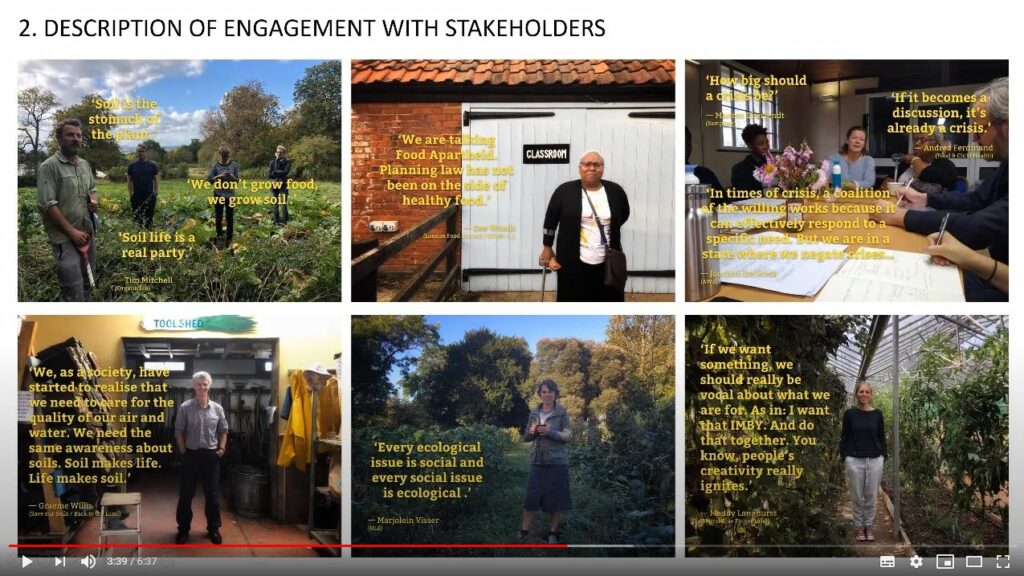
SUGI project video of Urbanising in Place
As part of the SUGI Midterm event in June 2020, short films were made of all the different SUGI projects. Via the links below, you can watch a short movie with an update of the Urbanising in Place team.
- June 15-16, online
- Project video urbanising in place
- Project video's other SUGI projects
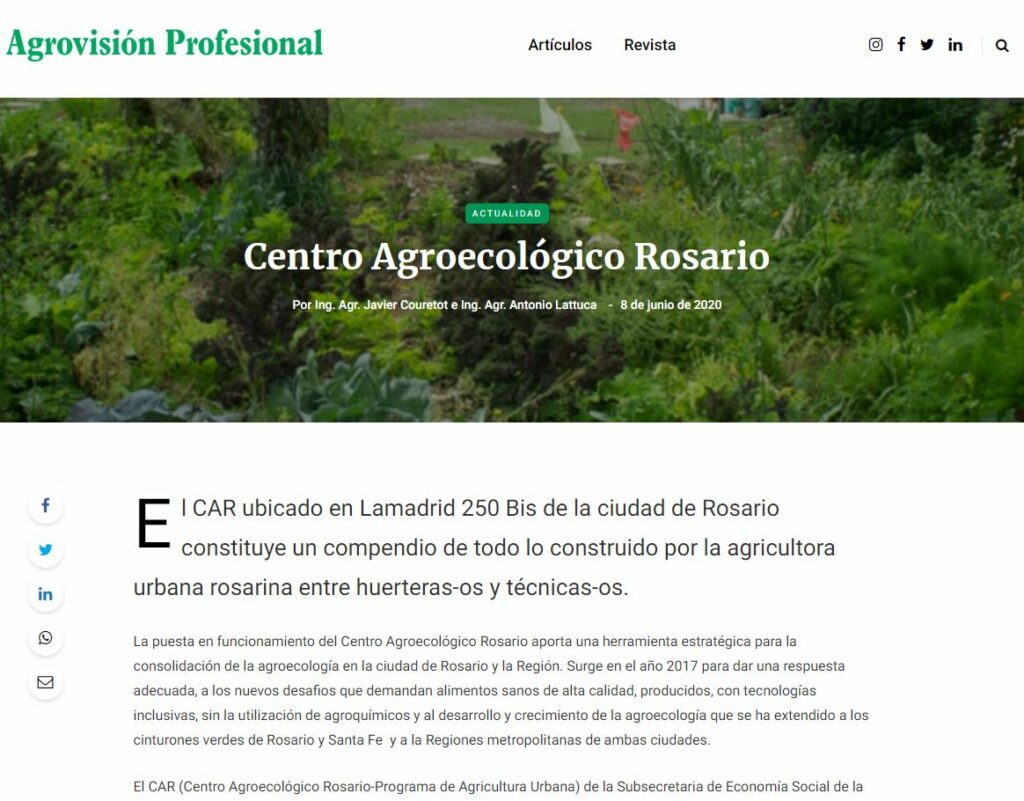
Article on the Agroecological Centre of Rosario
Antonio describes the role of the Agroecological Center of Rosario as a strategic tool for the consolidation of agroecology in the city of Rosario and the region. The centre functions as a space in which adequate responses can be developed to the new challenges that demand healthy, high quality food, produced with inclusive technologies, without the use of agrochemicals and at the service of the development and growth of agroecology in the green belts of Rosario and Santa Fe and in the metropolitan regions of both cities.
- June 8, Santa Fe Argentina
- Read the article (in Spanish)
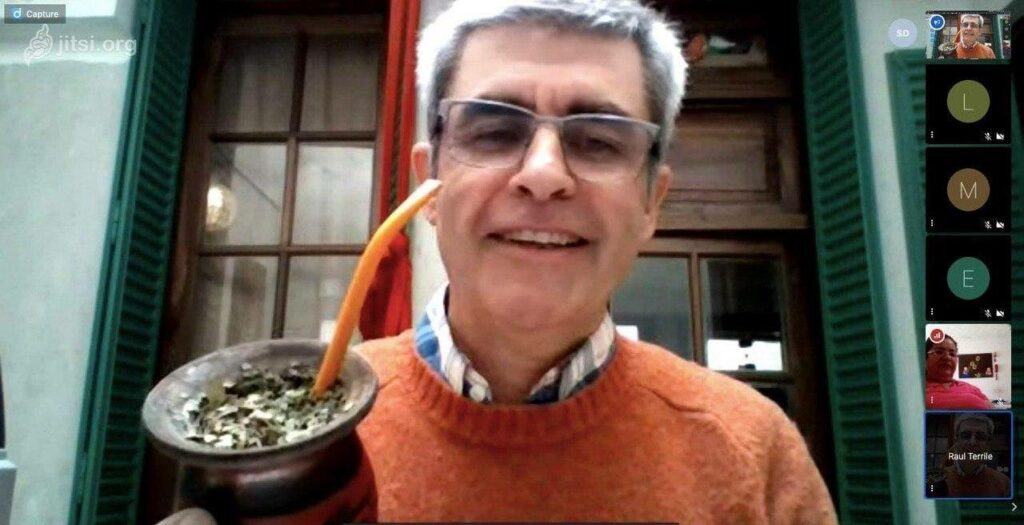
Online course urban and peri-urban agriculture experiences in the cities of Tlajomulco (Mexico) and Rosario (Argentina)
Raíl presented the experiences of the city and region of Rosario in developing urban and peri-urban food policies with an agroecological approach. He made use of the agroecological building blocks that are being developed within the Urbanising in Place project.
- June 6, online, Mexico
- Recording of the interview (in Spanish)
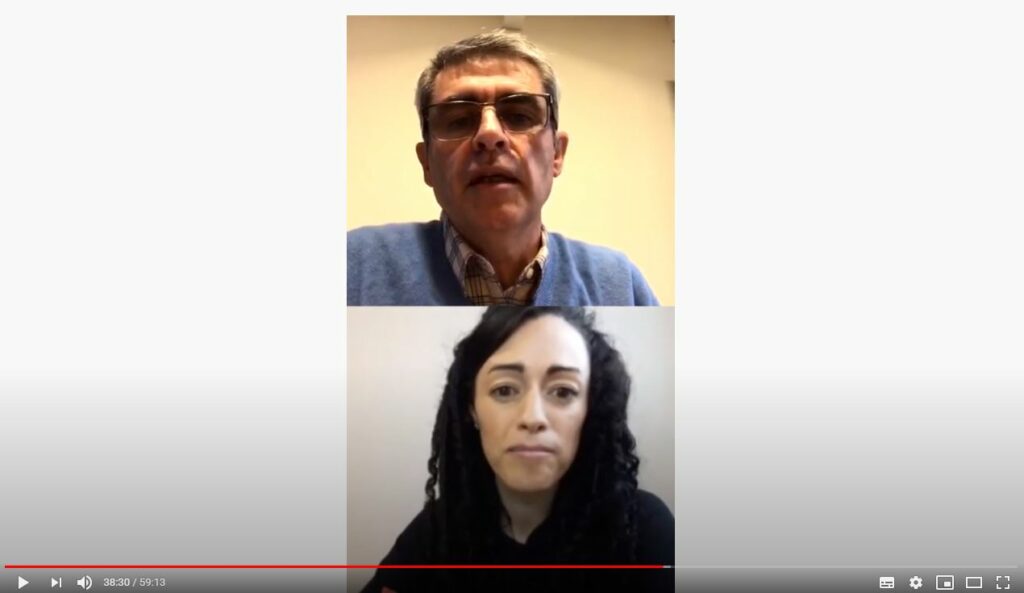
Online interview "Health crisis and Agroecology"
Discussion on food quality linked to production and development models and ways to reverse the current situation. Raúl presented the experience of the city of Rosario linked to food systems, local food produced by urban agriculture and the peri-urban green belt. The contributions of the Urbanising in Place Project to strengthen this agro-ecological-based project were discussed.
- May 30, online, Rosario Argentina
- Recording of the interview (in Spanish)
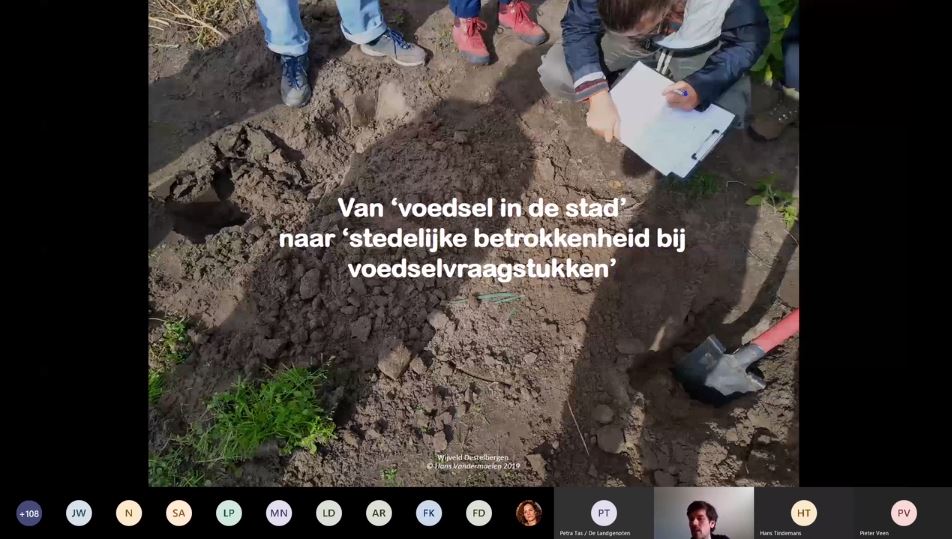
Post Corona Talk on the urban food issue
Hans gave a key lecture on the impact of covid19 on the urban food issue in a post corona session on food, organised by the Flemish association of spatial planners. The information from this presentation was used by VRP as a basis for formulating policy recommendations for recovery from COVID-19.
- May 27, online
- Recording of the webinar (in Dutch)
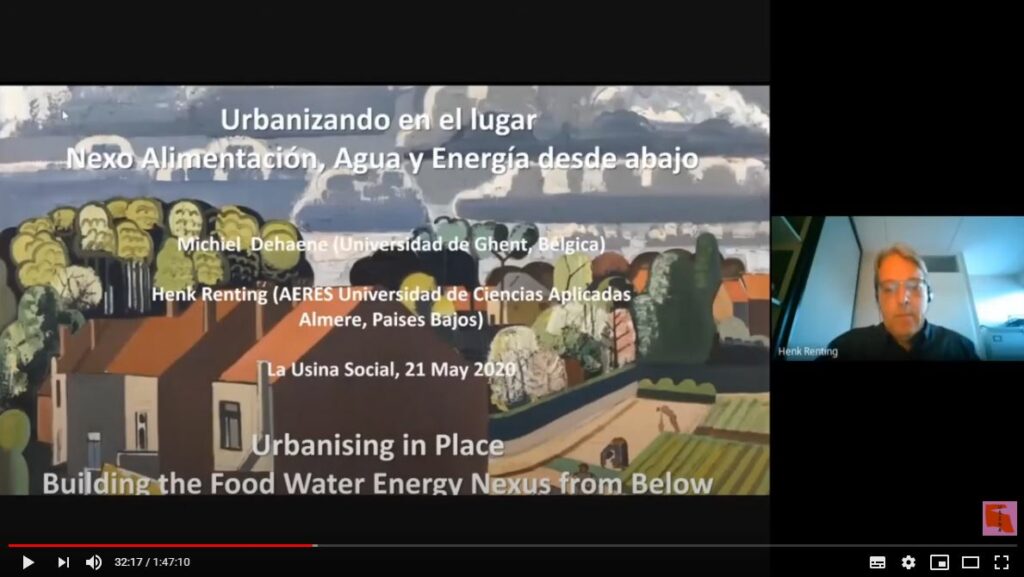
Webinar on Food Sovereignty and Sustainable Food production
Henk Renting (Aeres University) and Michiel Dehaene (Gent University) participated in a webinar hosted by the Usina Social Rosario together with Marta Soler Montiel (Universidad de Sevilla, Spain) ad Mauro Casella (Former Secretary for Territorial Development, Province of Santa Fe, Argentina). Michiel explained the importance for our project of the long term work of the Municipality of Rosario on Agroecology. Henk reflected on challenges and opportunities for Urban Agroecology in times of COVID 19.
- May 21, online, La Usina Social Rosario
- Recording of the webinar (mainly Spanish)
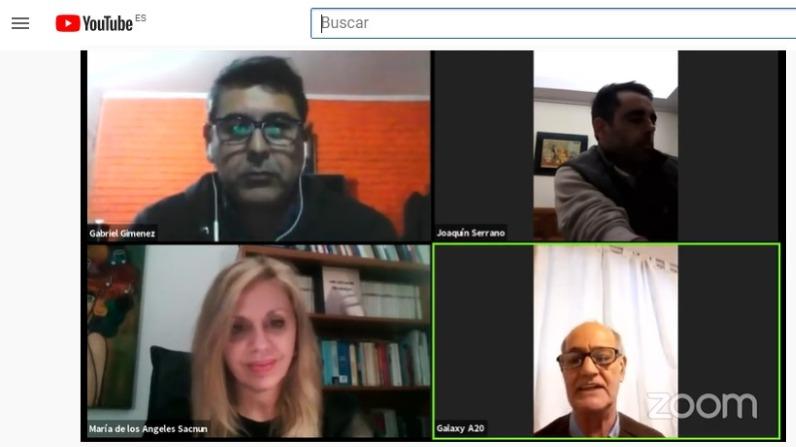
Conference food production and food sovereignty by Casa Patria Rosario
Antonio Lattuca talked about the urgent need for change in the way food is produced, and shared his interest and the multiple advantages of an agroecological perspective, used in shaping the Urban Agriculture Program of Rosario.
- May 8, online, Casa Patria Rosario
- Recording of the webinar (Spanish)
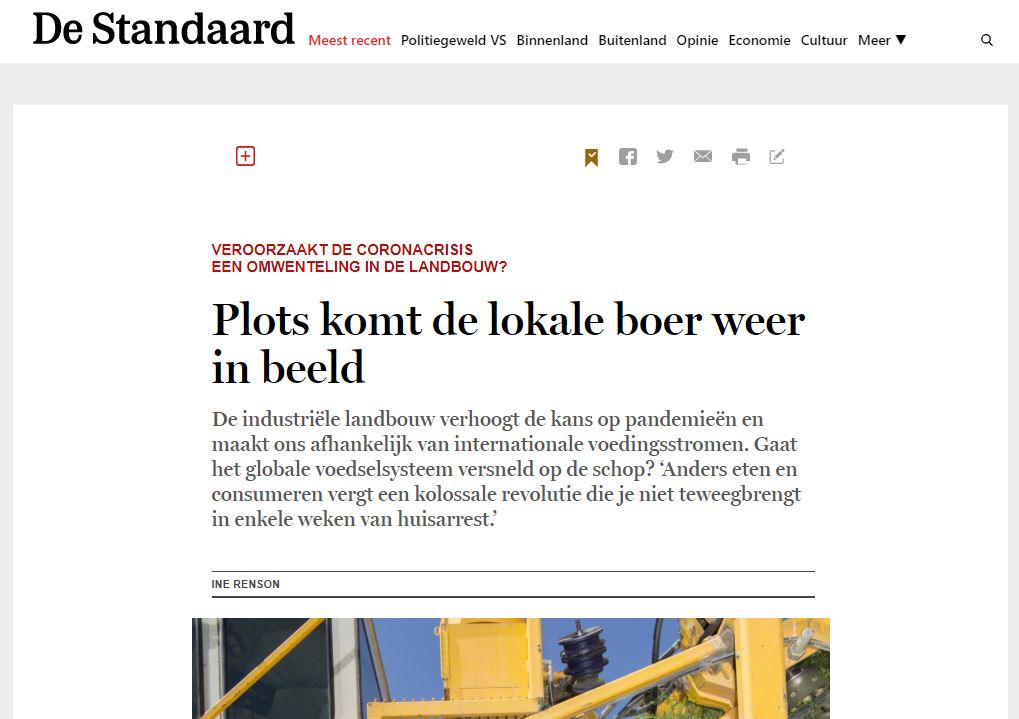
Open letter and interview on food security in Belgian newspapers
Facing the historical crisis of the Coronavirus pandemic, let us organize our food security!’ is an open letter and petition launched by a group of academics and experts in the fields of agriculture and climate. Architecture Workroom Brussels played a role in bridging the initiative coming from the French speaking community of Belgium with the Flemish community and was asked to contribute to the article ‘And suddenly, the local farmer comes in to play’ in newspaper De Standaard.

Roundtable on legal protection of soils
The purpose of the workshop was to explore the potential for soil quality to inform planning and development decisions, and for protecting high quality soils in an urban / peri urban context. The discussions identified a lack of action in terms of public awareness raising or campaigning and as proposed to create a coalition to develop a public awareness campaign and / or support community action on soils that supplements / complements existing action on policy and knowledge development.
- March 26, London
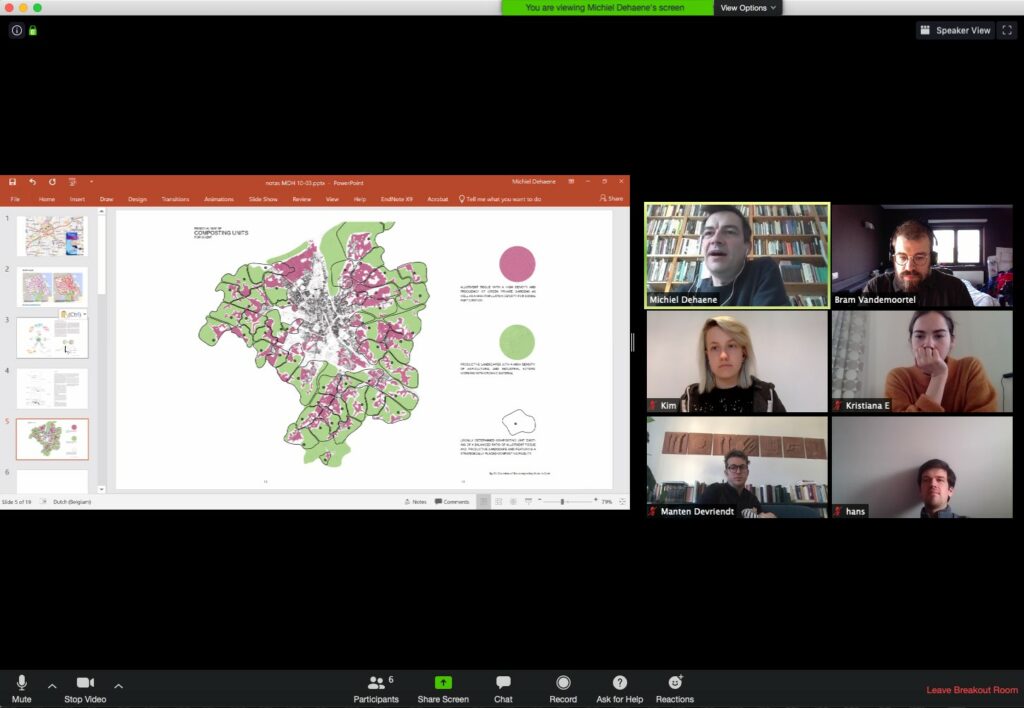
Intervisioning Meeting Brussels – online edition
Though the Covid-19 pandemic prevented the Brussels intervisioning workshop, the consortium met through an online three-day workshop focusing on the concept of an agroecological urbanism. The Brussels team is hoping to be able to reschedule the planned workshops, debates and field trips to the exemplary practices of the Flemish mixed farm movement and the Brussels urban new farmers community.
- March 24, online, international
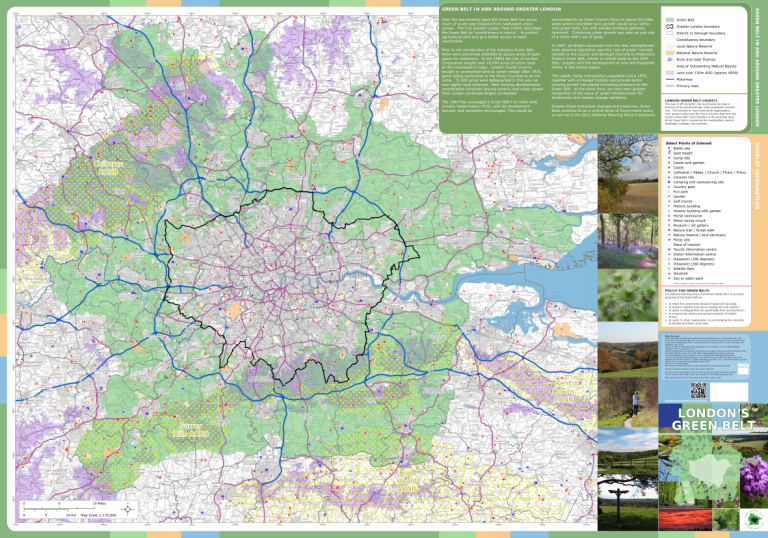
Workshop "Use of the Green Belt" hosted by the Greater London Authority
The aim of the workshop was to bring together a number of key stakeholders to discuss and explore what ideas, policy changes and potential new mechanisms are in development or are emerging that would enable a step-change in positive use of the Green Belt in and around London. It was agreed to establish a Green Belt working group – hosted by the Greater London Authority to; ensure continued dialogue and sharing of ideas and information, develop a core set of principles that would help frame the positive use of the Green Belt, and develop a collective voice would be able to influence key decisions.
- March 4, London
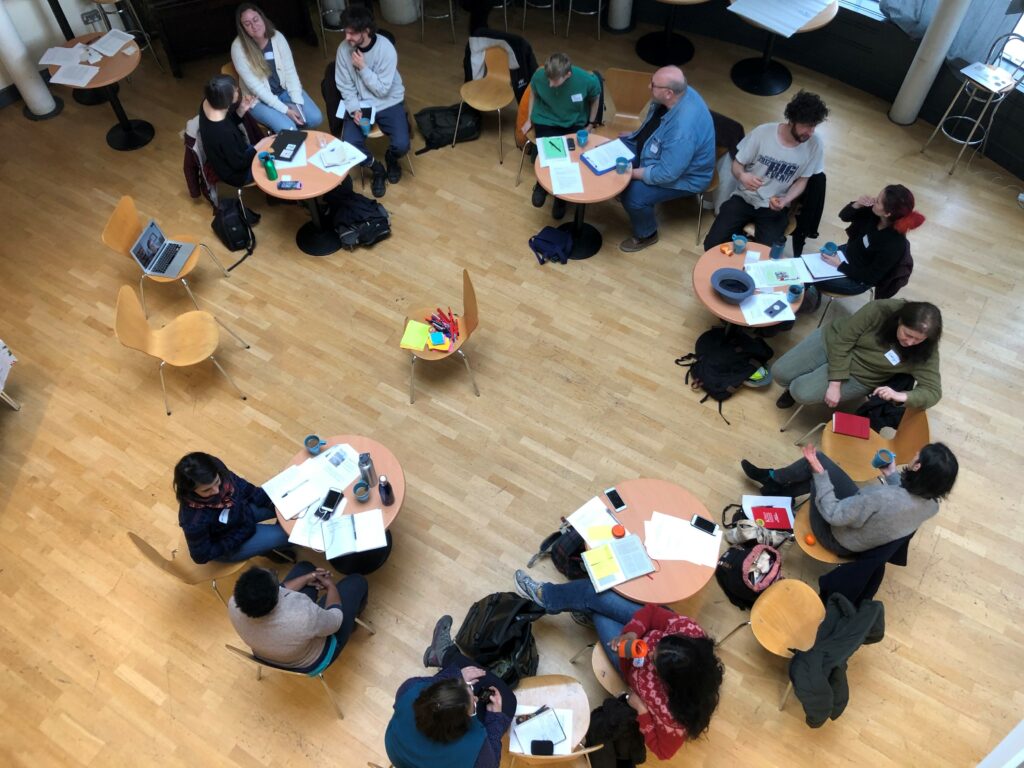
Workshop on Soil Care with London practitioners
Growers from projects across London came together to discuss their practices of soil care, nutrient cycling and waste management, the potential opportunities for collective soil care and barriers to this. The workshop helped provide more information on the soil care practices of London’s growers, and narrow down some clear pathways for politicising this work by; raising the wider public’s awareness about the importance of soils, putting knowledge back into the hands of growers around soil health, and working with councils/growers to direct more resources towards agroecological growing.
- March 3, London
- Read Shared Assets's report
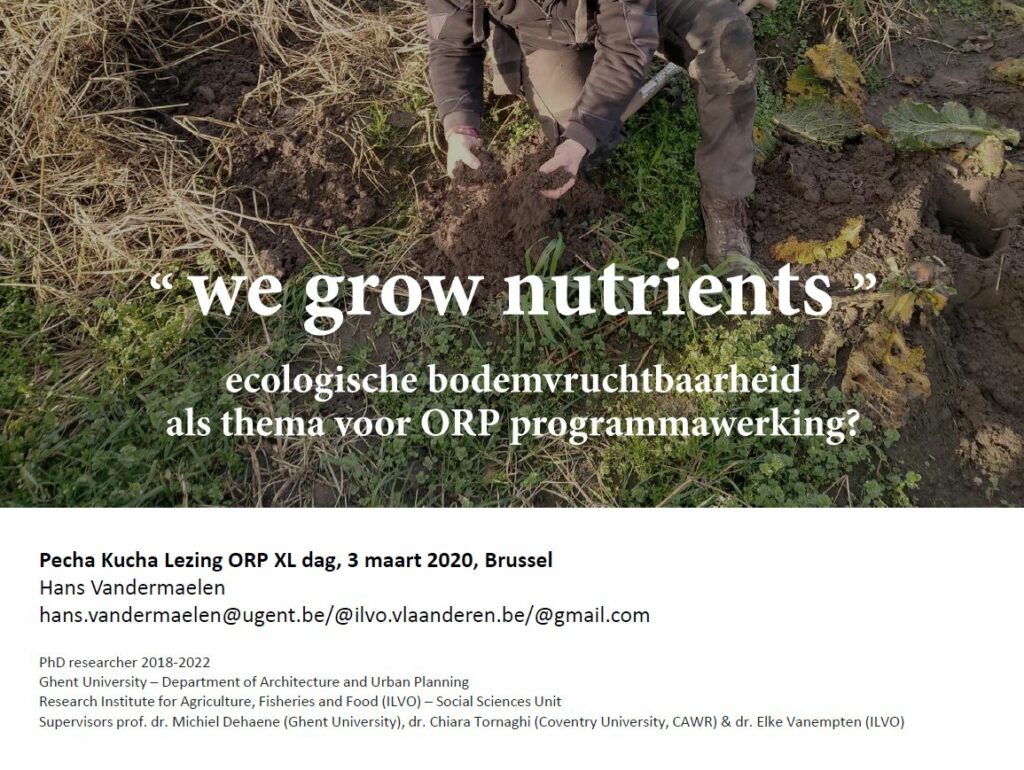
Lecture on soil fertility for Belgian open space platform
Hans gave a short presentation for the Flemish open space movement at the ‘Open Space Platform XL’ event. In his petcha kucha lecture ‘we grow nutrients’ he presented ideas for action-oriented policy around the theme of ecological soil fertility.
- March 3, Brussels
- Video impression Open Space Platform XL
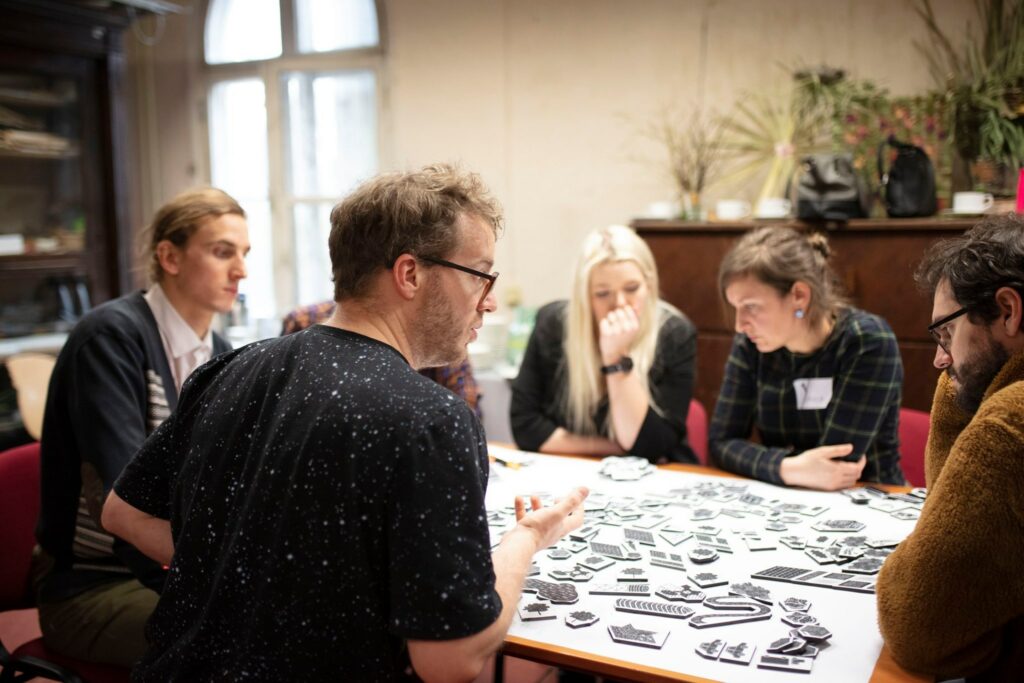
Workshop “Agroecological City”
A local workshop, organised by Sampling and Art Academy of Latvia, aimed at involving local growing communities in discussion about diverse forms of agriculture in the city. Presentations by Liene Jākobsone, Manten Devriendt, Aleksandrs Feļtins, Māris Narvils, Nora Gavare and Līga Lepse contextualised the issue from different perspectives. Workshop was followed by a luch prepared by the renowned Latvian chef Juris Latišenoks, using self-grown products brougt by the participants.
- February 27, Botanical Garden of the University of Latvia
- Photo gallery
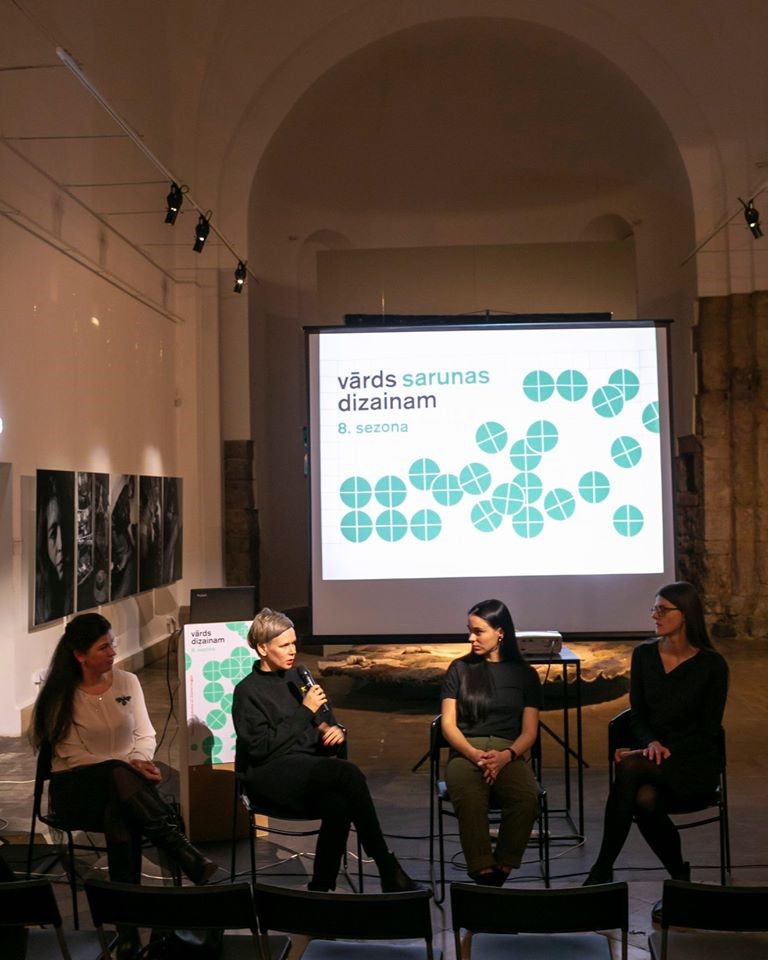
Design Talks: Food
Liene Jakobsone, researcher at the Art Academy of Latvia, gave a presentation on the relationship between food and the city, and moderated a discussion on food and design.
- February 20, Museum of Decorative Arts and Design, Riga, Latvia

Article "Cultivate food landscapes" in Belgian architectural magazine
Bram Vandemoortel and Lene De Vrieze of Architecture Workroom Brussels wrote an article ‘Cultivate food landscapes’ for Belgian architectural magazine A+, with this specific edition focusing on Village architecture and the countryside challenges. The article calls for architects and urbanists to facilitate the radical embedding of agriculture in the urban agenda through their design capacity and innovation, with BoerenBruxselPaysans as an inspiring example.
- February-March, Belgium
- Publisher's website
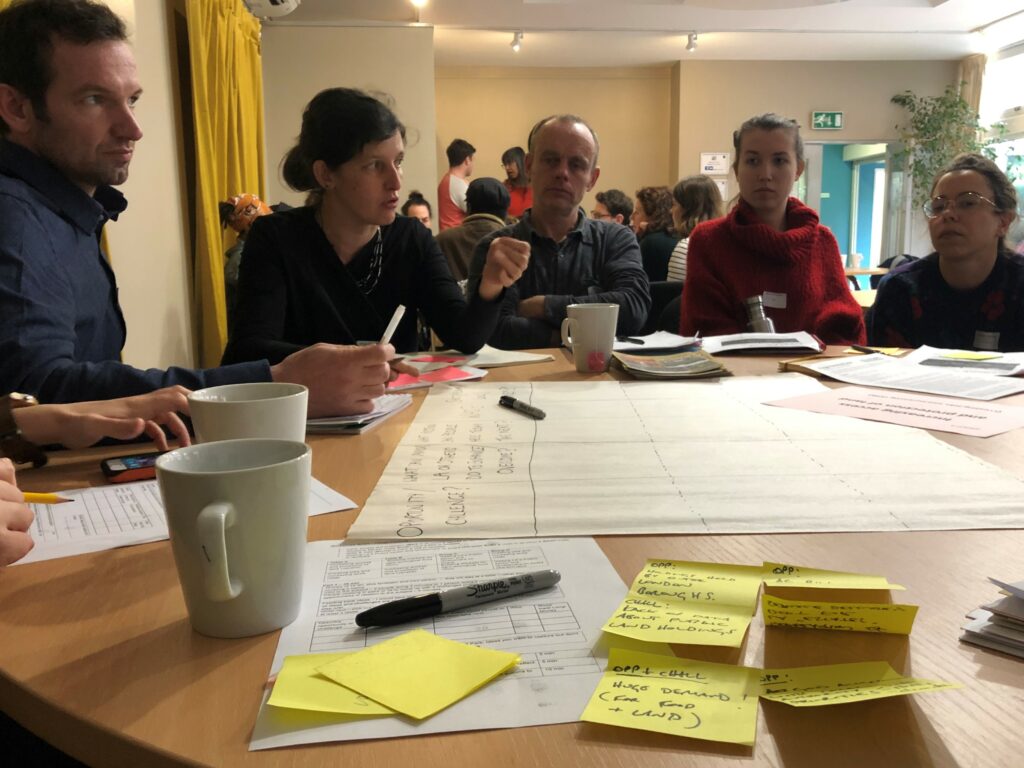
Conference fringe farming in London
The workshop explored existing practice in London in terms of growing food at scale the urban fringe, the barriers and opportunities to increasing food production there, and how local municipalities on the edge of London can support an increase in the amount of land and people making a living and gaining skills through growing food. Participants produced a number of action plans including to; explore the potential for increasing food growing in one specific municipality, improving joint lobbying with respect to national policy, and developing the idea of promoting London as a Market Garden City.
- February 4, London
- Go through presentations and notes of speakers
- Read Shared Assets's report

Lecture Food and the Selective Memory of Urbanism
In a seminar on the use of history in architecture and planning education Michiel Dehaene discussed the selective way in which the urban food question has been addressed in urban planning and design. Why is it that we have come to experience food as a new matter of concern in urbanism? While the constant supply of food is obviously an intricate part of the relationships of interdependence that need to be collectively taken care of to make urban life possible, it is surprising how since the end of the 19th century food has been progressively removed from the urban agenda, only to witness its recent and somewhat clumsy return as of late as part of the urban climate agenda. Food can be understood within this historical trajectory as a question of political ecology in the literal sense of the word, that is, as part of the political negotiation of those aspects of life that are (and those that are not) made into a collective matter of concern, worthy of political attention.
- January 15, Manchester
2019
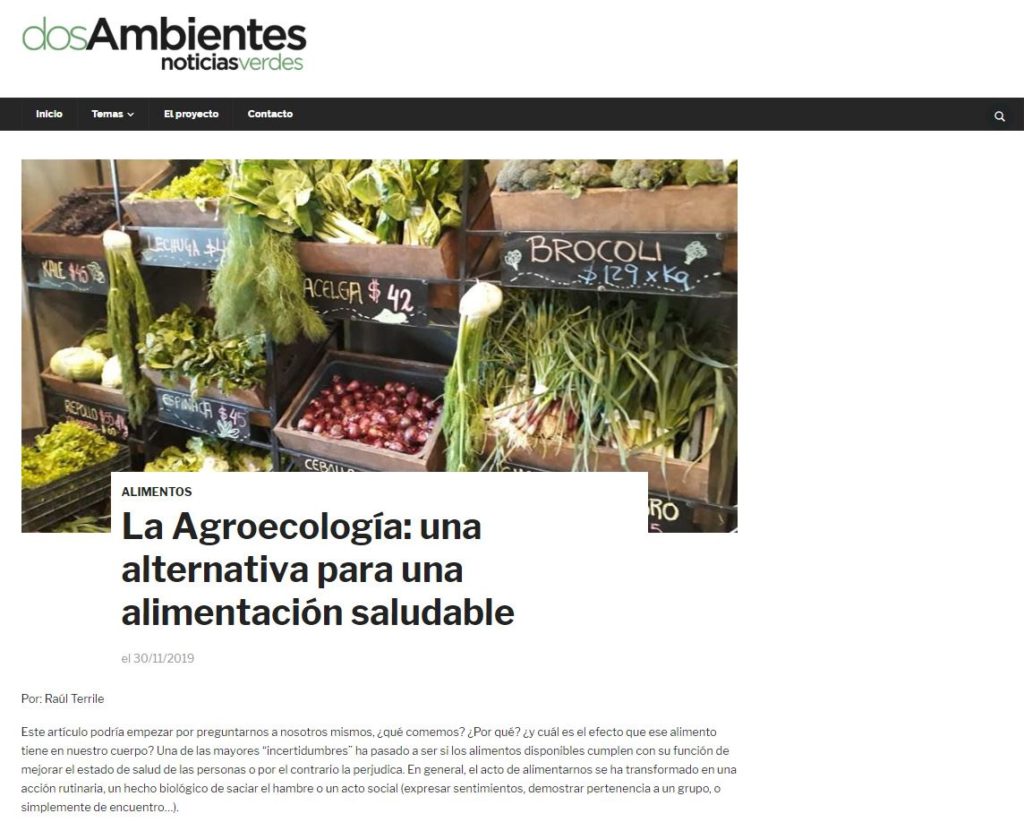
Article for news platform dos Ambientes
Raúl Terrile published an article on the Argentinian news platform dos Ambientes, starting from the problems of the current food systems and moving towards the possibilities of agroecological alternatives. 20 years of experience in Rosario illustrates that it is possible to develop and scale up agroecological practices, and to increase access to healthy food.
- November 30, Argentina
- Read the article (Spanish)
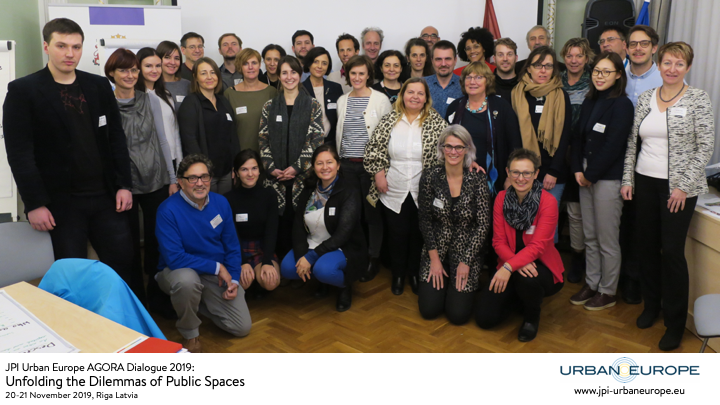
AGORA workshop JPI Urban Europe
Manten Devriendt joined the JPI Urban Europe AGORA workshop: Unfolding dilemmas in urban public space development and maintenance:
Consequences for policy and research and innovation. We had inspiring discussions and exchanging with peers from all over Europe (plus Canada). The key messages identified in the event will be worked out in a policy document by the JPI team in collaboration with the participants of the workshop.
- November 21-22, Ministry of Education Riga
- Event page
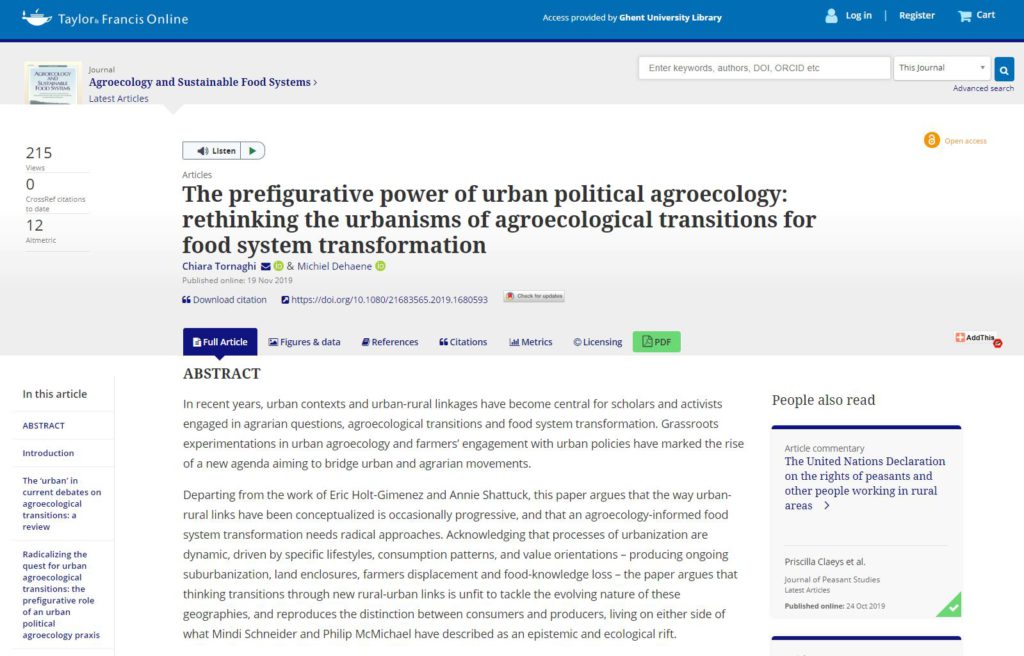
Paper 'The prefigurative power of urban political agroecology'
Chiara Tornaghi and Michiel Dehaene published a paper in Agroecology and Sustainable Food Systems on “The prefigurative power of urban political agroecology: rethinking the urbanisms of agroecological transitions for food system transformation”. Building on insights from the four case-studies of the project, the paper reframes agroecological transitions as a paradigmatic change in biopolitical spatial relations, economic values and planning agency.
- November 19
- Read the full article (open access)
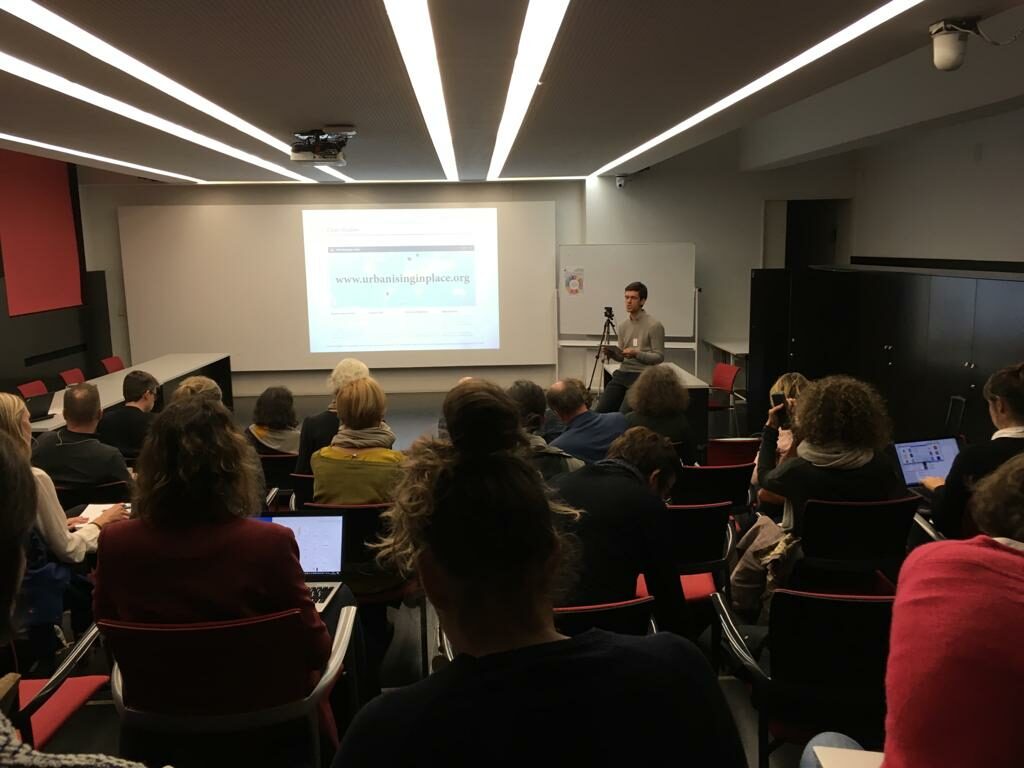
AESOP conference agroecological transitions and food planning
The UIP research team was represented at the AESOP food planning conference ‘Agroecological transitions confronting climate breakdown: Food planning for the postcarbon city’ in Madrid. Hans, Chiara and Michiel gave a presentation about how to embed agroecology’s soil care principle in the urbanised society. We exchanged experiences on how a strong involvement in the agroecological community can help to accurately identify pathways for an agroecological urbanism.
- November 7-9, ETSAM-Universidad Politécnica de Madrid
- Event page
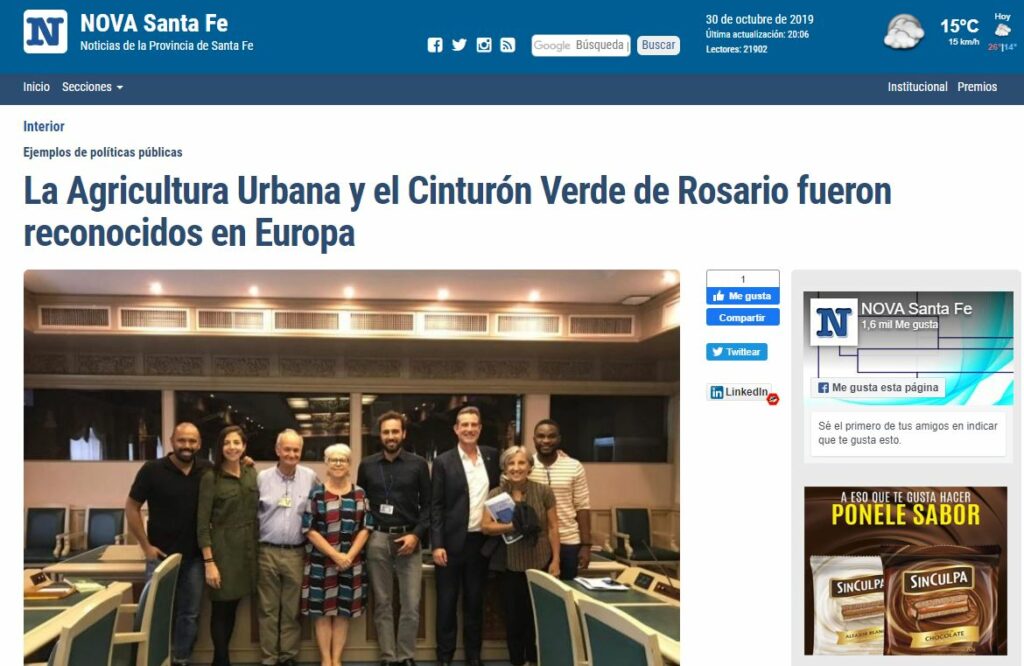
Article on the participation of Antonio Lattuca and Raúl Terrile in the Urbanising in Place London Seminar
Newspaper article about the participation of Antonio Lattuca and Raúl Terrile in the third meeting of the Urbanising in Place project in London.

Paper 'Urban manure systems and the historical articulation of the urban nutrient question'
Hans Vandermaelen published a paper in OASE#104 on the urban household of metabolism. The paper describes urban manure systems as an historical articulation of the urban nutrient question.
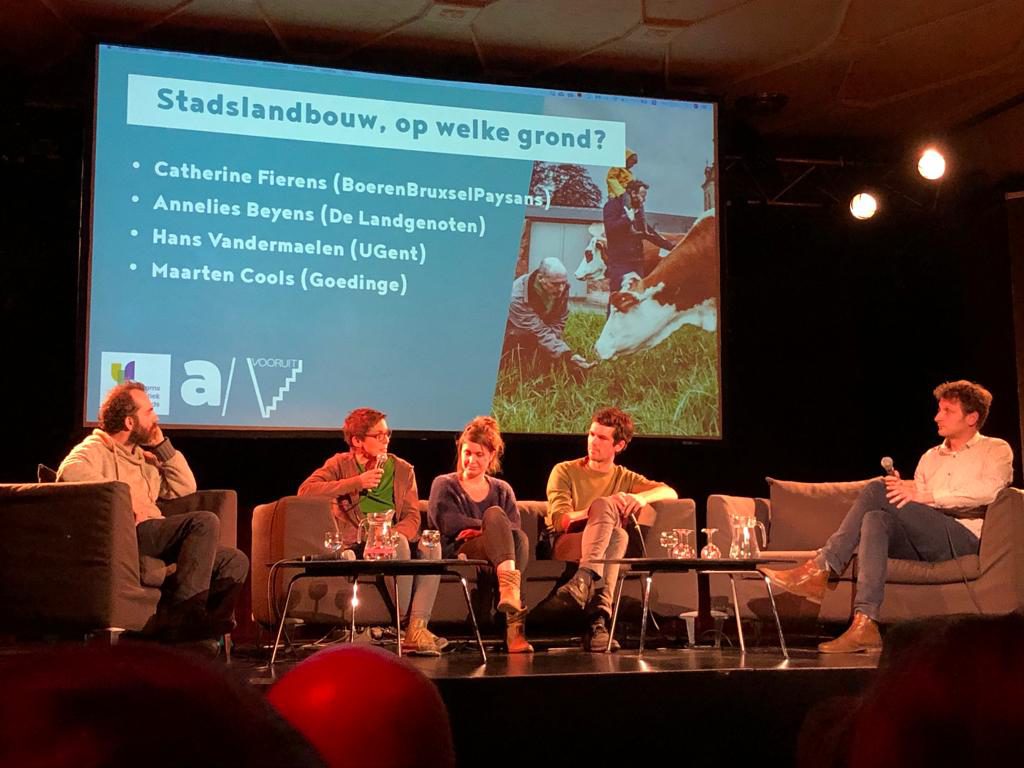
Debate on public land as crucial instrument for urban food policy
Catherine Fierens and Hans Vandermaelen participated in a debate in the city of Ghent about the importance of public land positions for the implementation of a distinctive urban food policy. The debate was organized by Apache, a Belgian news platform, in response to a growing opposition from local actors, including agroecological food producers, against the large-scale sale of public agricultural land.
- October 23, Kunstencentrum Vooruit Gent
- Event page
- Watch the full debate (Dutch)
- Read the report of the evening on Apache.be (Dutch)
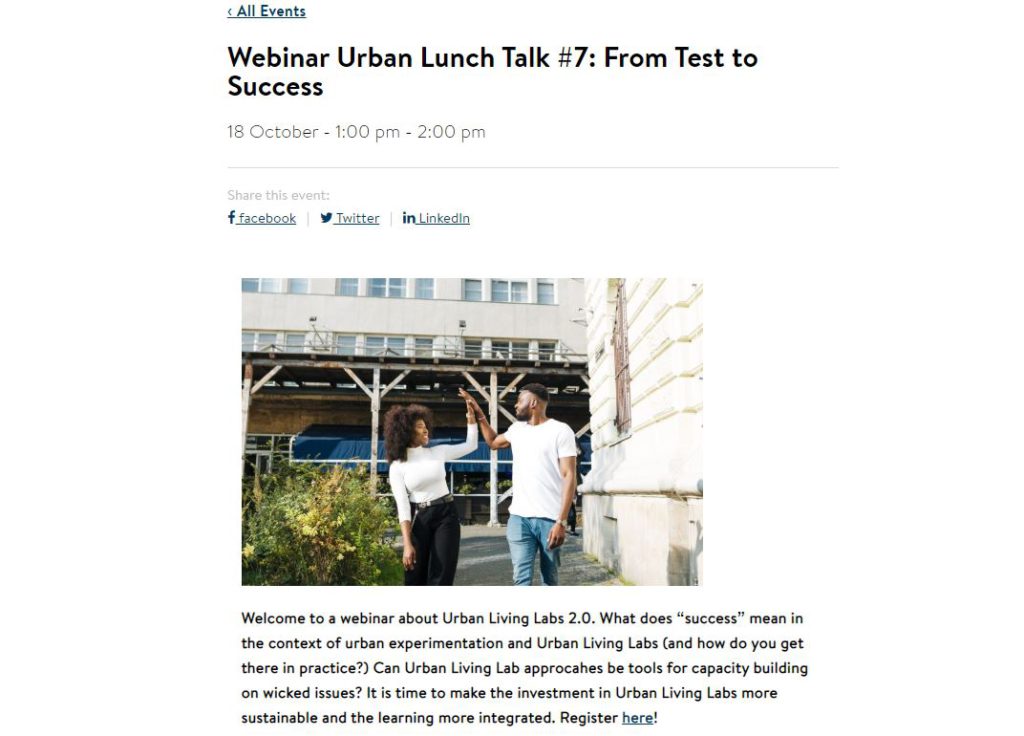
Webinar of Urban Europe #7 "From Test to Success"
What if brave cities experimented and the infrastructure supported it?
Michiel Dehaene participated in the seventh online Urban Lunch Talk organized by JPI Urban Europe. Michiel shared some of the experiences in the consortium on the experimentation in the Local Platforms and the politicizing dimension of the participative action research.
- October 18, international
- Event page
- Watch the webinar
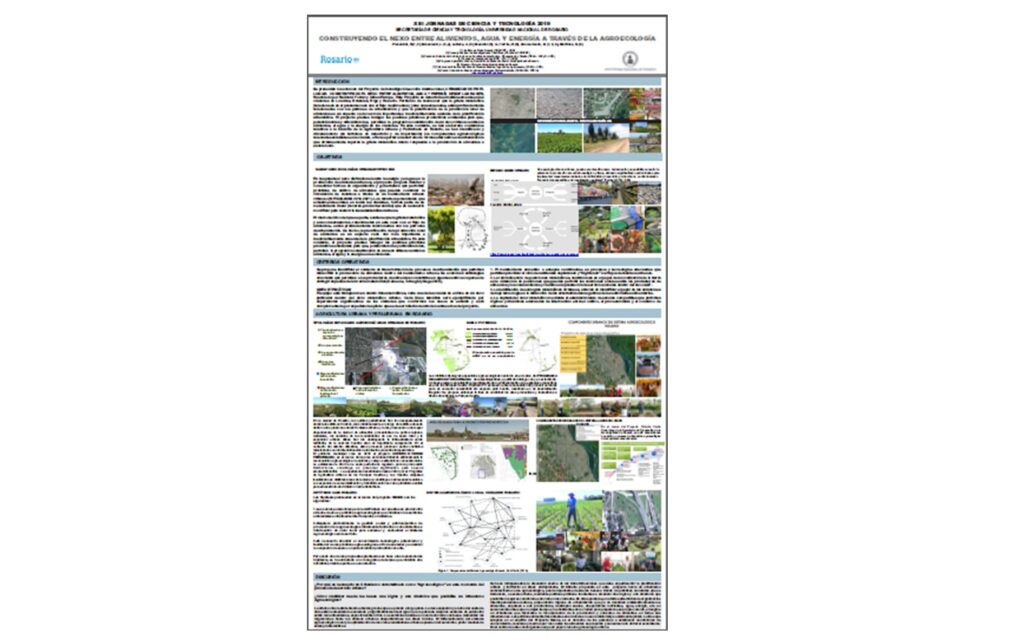
Poster and article about the Rosario case
The Rosario team presented the research focus and goals of the Rosario case in the urbanising in place project with a poster titled “building the food, water and energy nexus through urban agroecology”, published in Actas electrónicas de las XIII Jornadas de Ciencia y Tecnología de la UNR, Rosario, Argentina.
- October 16, Rosario
- Read the full article (Spanish)
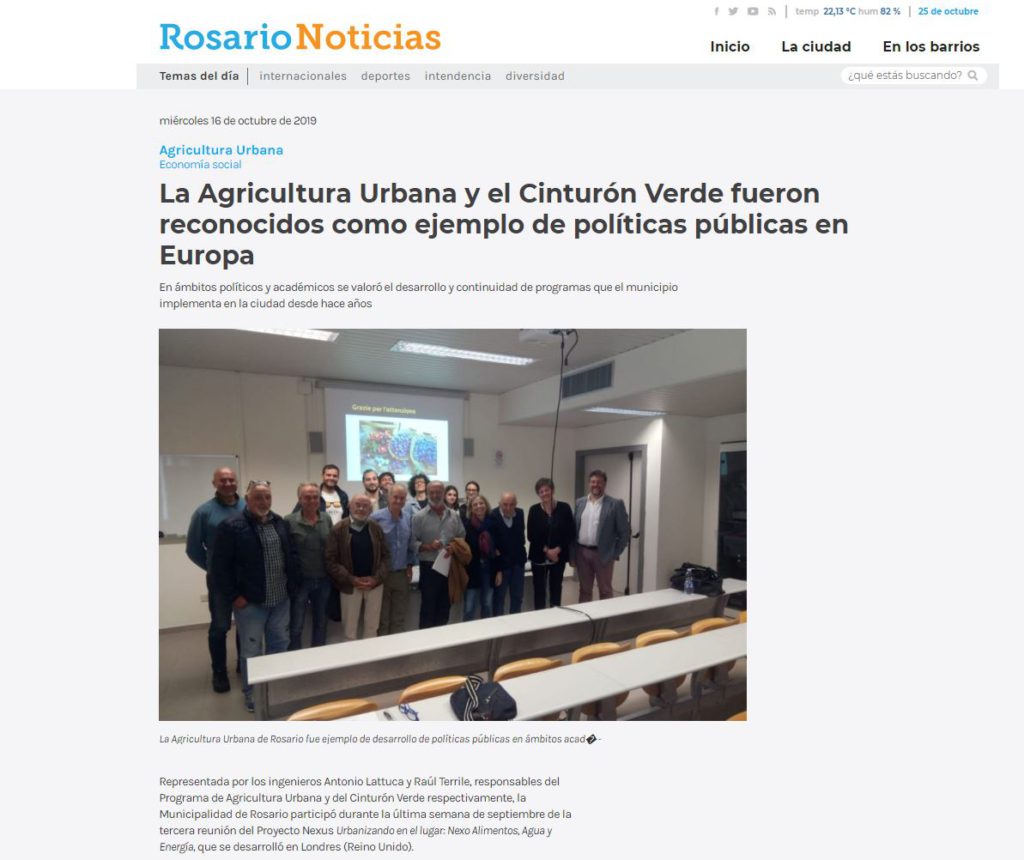
Interview for local news platform Rosario Noticias
The international attention for Rosario’s agroecological policy has not escaped the attention of the local press in Rosario. ‘Rosario Noticias’ interviewed Antonio Lattuca and Raúl Terrile about their participation in the intervisioning workshop in London in September 2019 (see below). They testify about the great international appreciation, both from a political and academic perspective, for over 20 years of pioneering work in Rosario.
- October 16, Rosario
- Read the full article (Spanish)

FAO Seminar on the Rosario Urban Agriculture Programme
Antonio presented the experience of the Urban Agriculture Program of Rosario. The public policy of the Secretariat of Social Economy of the Municipality of Rosario was created in 2002 as a comprehensive response to a crisis of food security and poverty. By integrating the principles of agroecology to transform public wastelands into sustainable productive spaces, the programme has contributed to increased access to healthy food, income generation and social cohesion, fostering joint knowledge creation and capacity building by empowering unemployed youth, women and men and enabling them to become innovative food producers, improve their access to healthy nutritious food and increase their income through the creation of local markets.
- October 1, FAO Headquarters Malaysia
- Recording of Antonio's presentation (Spanish - you will have to download Adobe Connect)
- Photo gallery
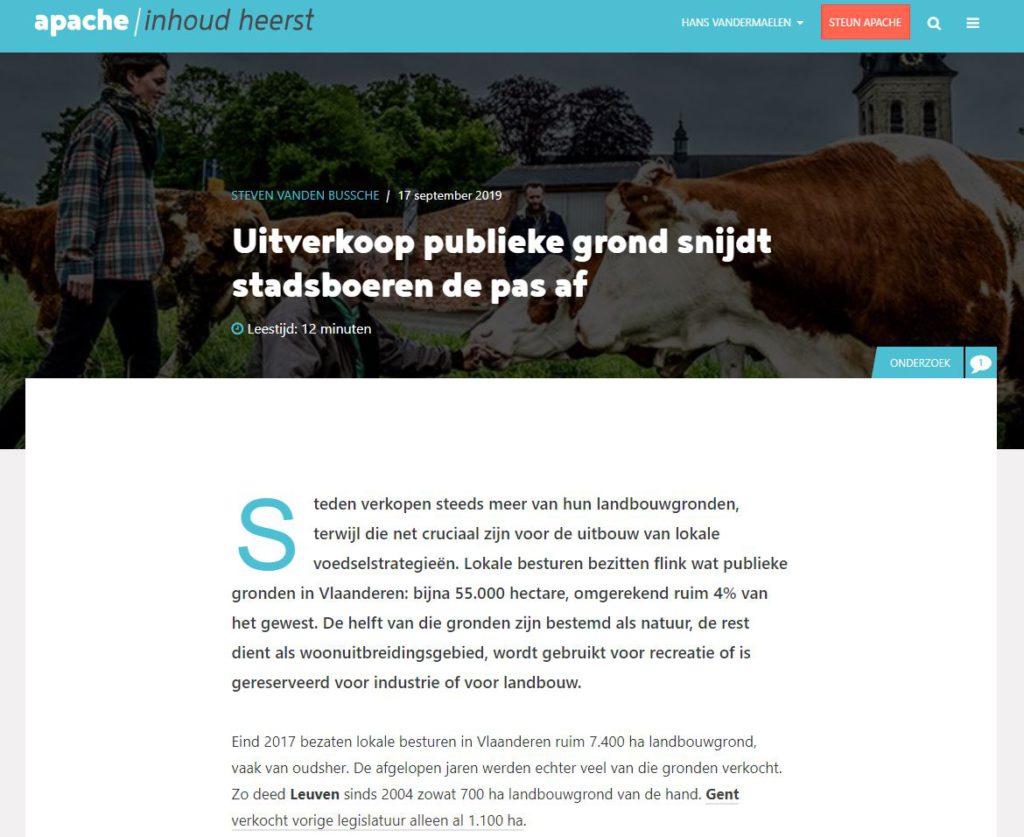
Interview for Belgian news platform Apache.be
Apache interviewed Hans Vandermaelen about the urban food question for an article on the large-scale sale of publicly owned agricultural land in Belgium. The work of the local platforms both in Brussels and Rosario are discussed.
- September 17, Belgium
- Read the article (Dutch)
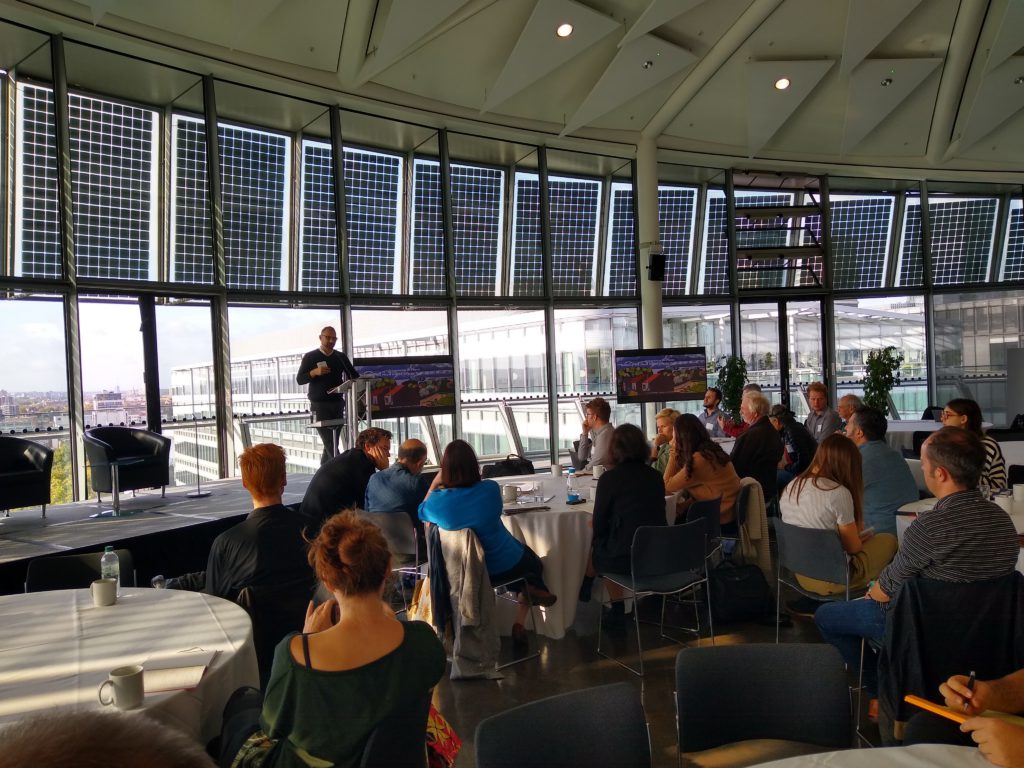
Stakeholder meeting City Hall London
As part of the London Intervisioning meeting the London Food Board hosted a policy discussion at London’s City Hall for project partners and local policymakers, to explore the potential for peri urban agroecological farming in the city and identify key stakeholders with an interest in engaging with the work of the project. As a result of the meeting initial discussions have been held with the Greater London Authority Green Infrastructure Lead about the potential for a review of the city’s greenbelt strategy. We are also working with the London Food Board to hold a joint event to further explore how London can support agroecological farming.
- September 27, City Hall London
- Read Shared Assets's twitter thread of this day
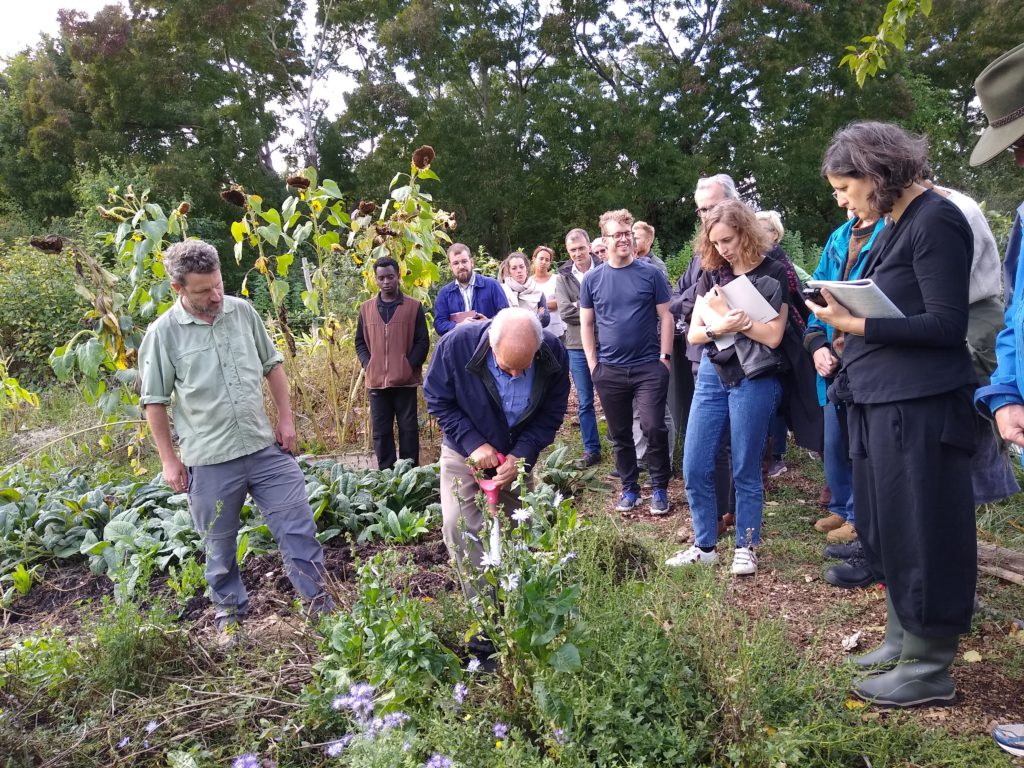
Soil care seminar with London practitioners and UIP team
This seminar on how and why we should protect and care for urban soils was part of the London Intervisioning meeting. It looked at the importance of soils, how they are currently under threat and local action to protect them against urban development, and explored different approaches to soil care, the links between soil, plant and human health and how urban organic waste can contribute positively to soil health.
- September 26, Organiclea London
- Read Shared Assets's twitter thread of this day
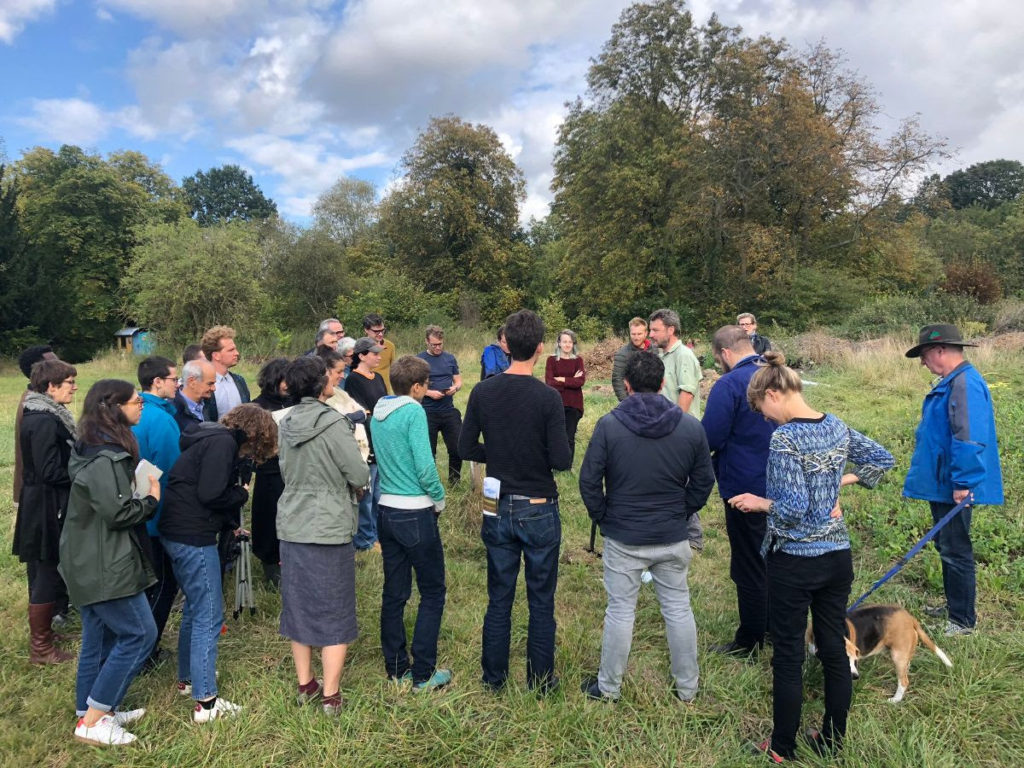
International Intervisioning Meeting London
In September 2019 project partners met in London to share learning, develop our research plans and gain a greater understanding of the context and practice of agroecological farming in London. The meeting included site visits to peri urban farms and growing sites, presentations and discussion from local practitioners and food activists, a one day seminar on soil health and soil care, and a policy discussion with key local policymakers and stakeholders at London’s City Hall.
- September 25-29, London
- Link to the reporting page
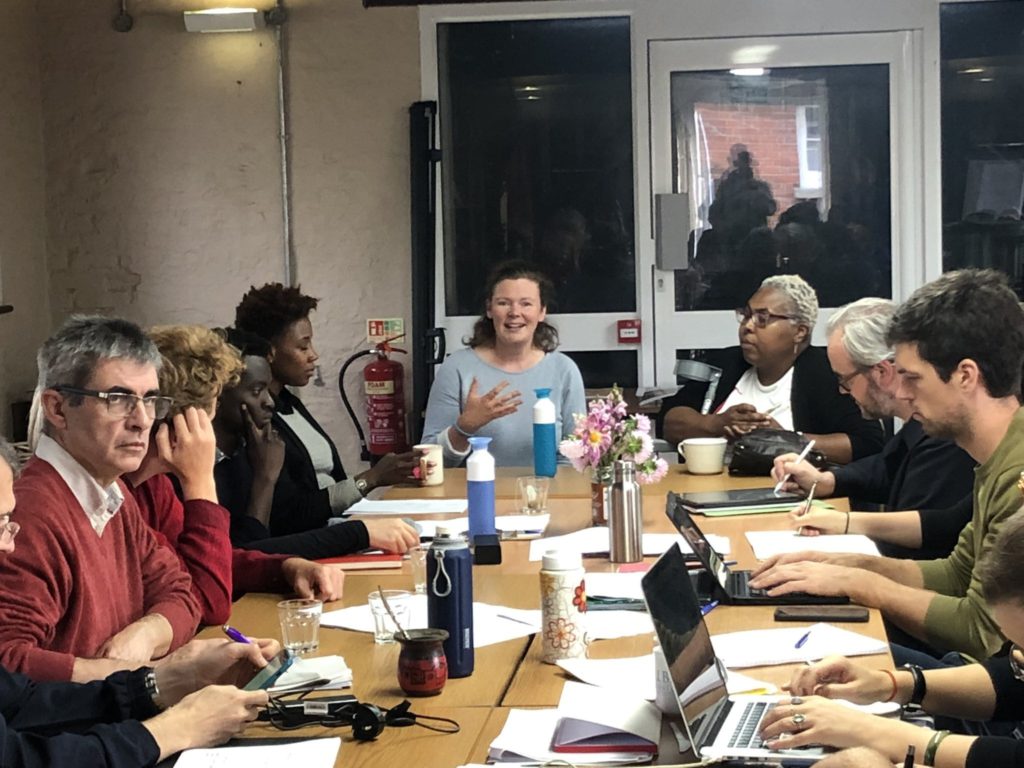
Political engagement & activism seminar with London practitioners and UIP team
As part of the London Intervisioning meeting local food and land activists presented on their work and the work of their networks to promote agroecogical farming, food justice and access to land for food growing in London.
- September 25, Forty Hall Farm London
- Read Shared Assets's twitter thread of this day
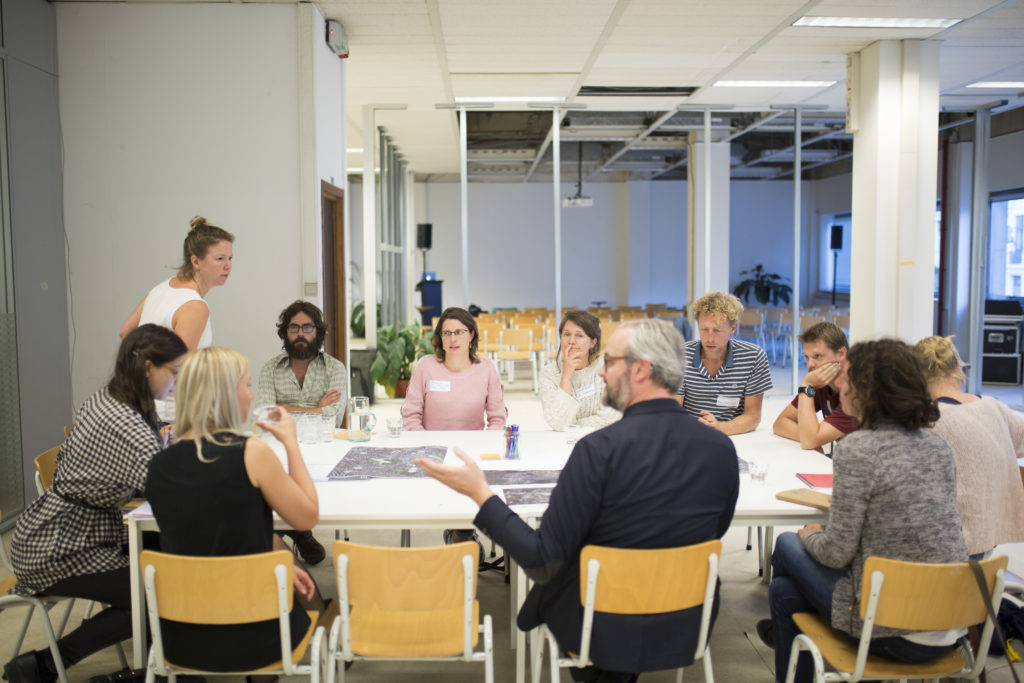
Workshop "Towards a Brussels Center for Agroecology"
The Brussels team organized an evening centred on a potential ‘Centre for Agroecology’ in Brussels. It was the first time that the two main movements depicted in the Brussels research hypothesis, the residualised mixed farmers of the Pajottenland and the new urban farmers, met each other around the question of Agroecology. After an introductory presentation, three parallel tables focused on: (1) Communities of Practice, (2) an Agroecological Programme and (3) the Zavelenberg-Hoogsteyns site in Ganshoren – Koekelberg.
- September 12, Brussels
- Read the full report of the workshop (Dutch/French)
- See more pictures
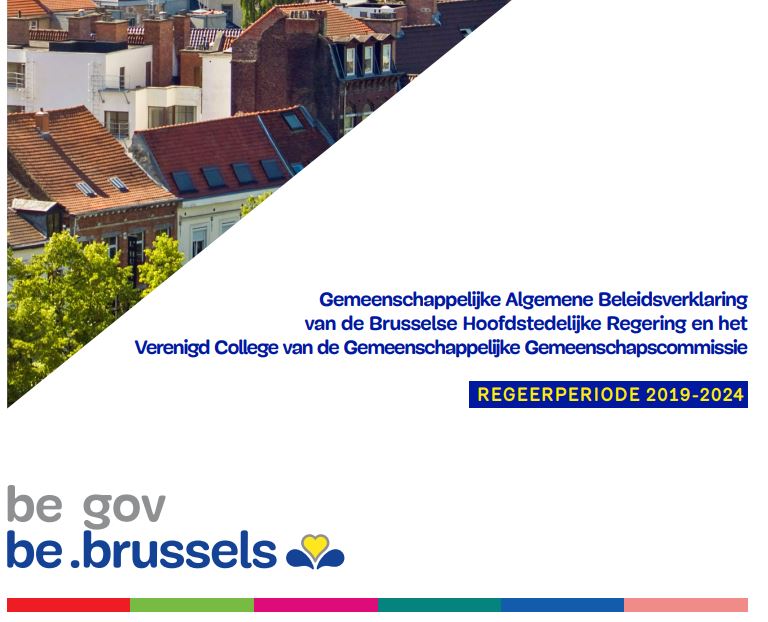
Agroecological ambitions in the new Brussels Capital Region’s Government Agreement
The inspiration of the Centre for Agroecology in Rosario was one of the many incentives for a clear ambition in the actual new Brussels Capital Region’s Government Agreement. Under the chapter “Urban Agriculture”, the Government Agreement pleads not only for the strengthening of the Brussels’ Good Food Strategy, but also plans the establishment of a “scientific reference centre giving an overview of the best agroecological techniques fitting in an urban environment”, including supporting infrastructure, a seed bank and a land observatory.
- July 17, Brussels
- Read the Brussels Capital Region's Government Agreement (Dutch)
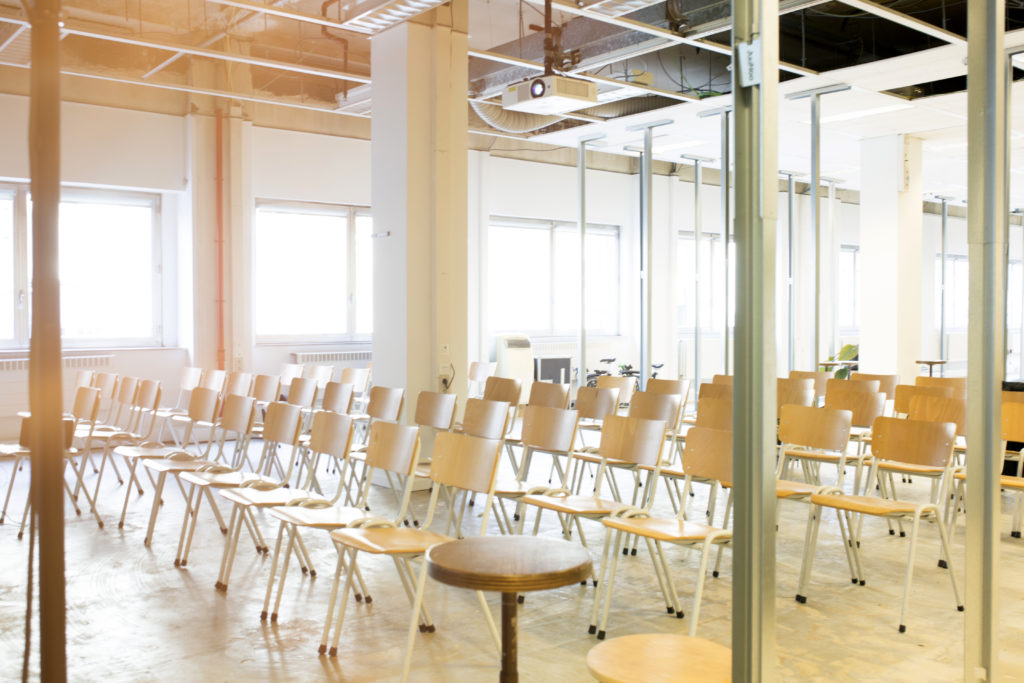
Discussing possibilities of a Centre for Agroecology for Brussels
Based on the experiences at the International Intervisioning Meeting in Rosario, the Brussels team is discussing with local actors the possibilities of a Centre for Agroecology for Brussels. Some of the collective infrastructure that is being set-up by the Centre in Rosario is in Brussels taken-up by grassroot movements, in particular also within the project of BoerenBruxselPaysans. Together with the Brussels Environment Agency, Architecture Workroom Brussels will organise a workshop in September with a broad scope of actors from civil society, grassroot movements, government, academics on what a Centre for Agroecology could mean in Brussels.
- March-June 2019, Brussels
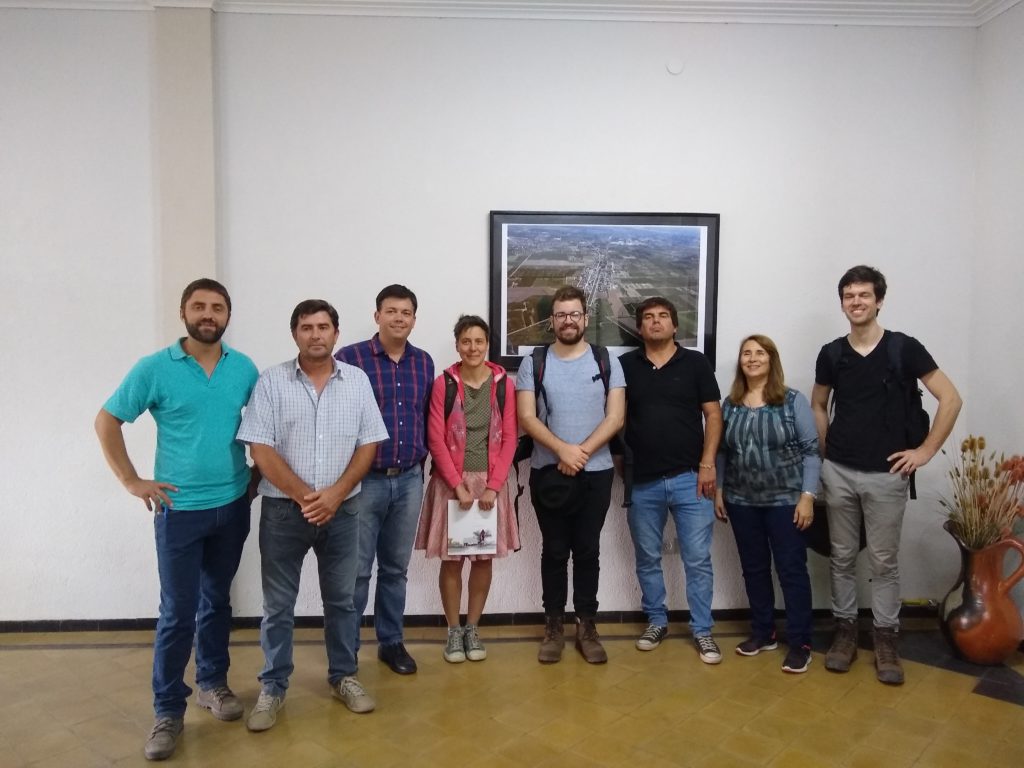
Invitation by the municipality of Soldini
Local policy makers from the municipality of Soldini, part of the Greater Rosario metropolitan area, met the UIP research team during the intervisioning workshop in Rosario (see below). We were invited to visit various food practices in the peri-urban Soldini a few days later, were introduced to local food policy, and exchanged feedback and experience with local policy makers Ruben Lo Presti and Alejandro Luciani on how to develop urban food policies in peri-urban areas.
- March 11, Soldini, Argentina
- Read the report of this visit in a local newspaper (Spanish)
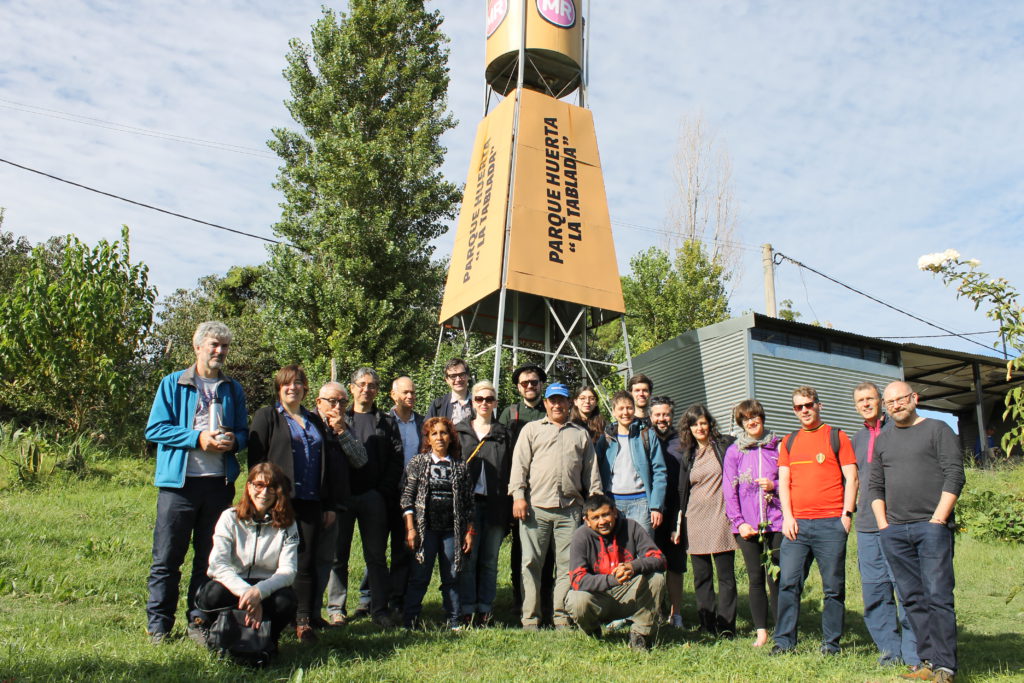
International Intervisioning Meeting Rosario
- March 6-10, Rosario, Argentina
- Link to the reporting page
2018
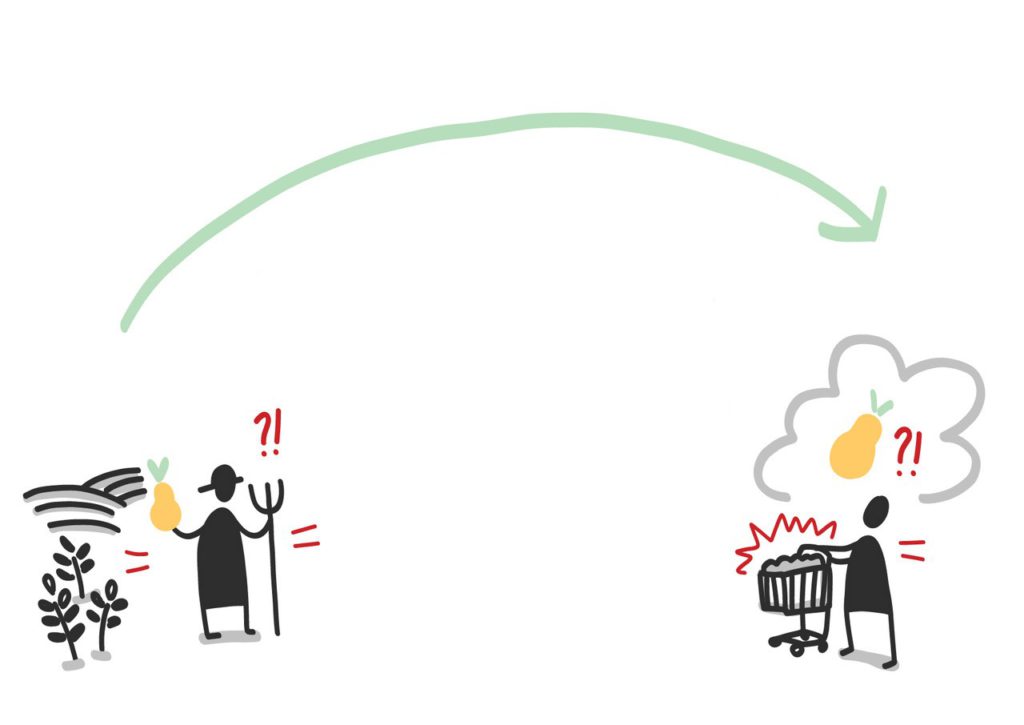
Short Food Chain Festival Brussel
Michiel Dehaene presented the project Urbanisingin Place at the Short Chain Festival in Brussels.
- September 21, Beursschouwburg Brussel
- Event page
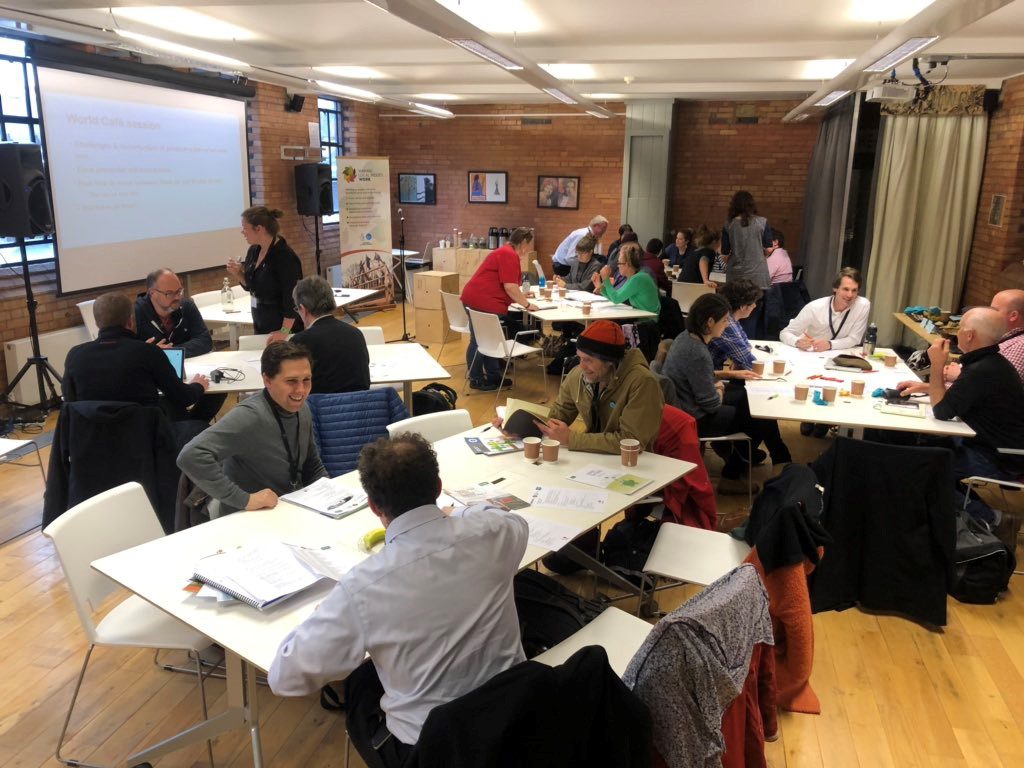
Roundtable Planning and Peri-Urban Land with London practitioners
Shared Assets and the Plunkett Foundation organized a roundtable to explore the planning challenges and opportunities presented by the productive management of peri-urban and Green Belt land for public benefit. The roundtable brought together planners, representatives of chartered institutions, other policy professionals and practitioners to share perspectives, understand the challenges and opportunities, and explore ways forward.
- June 21, London
- Read the invitation